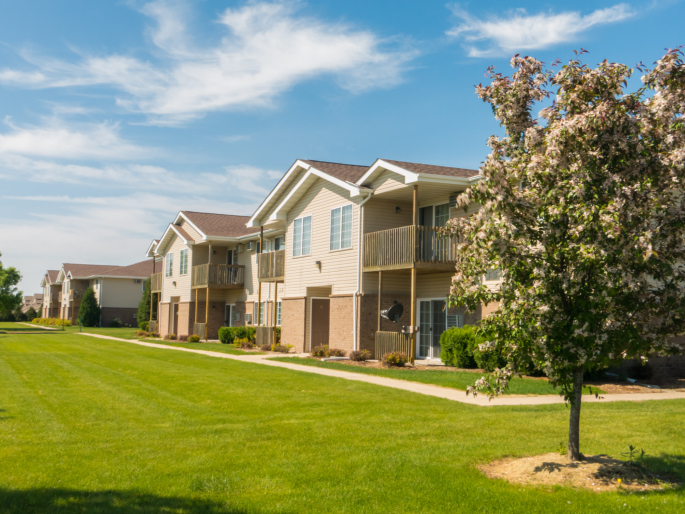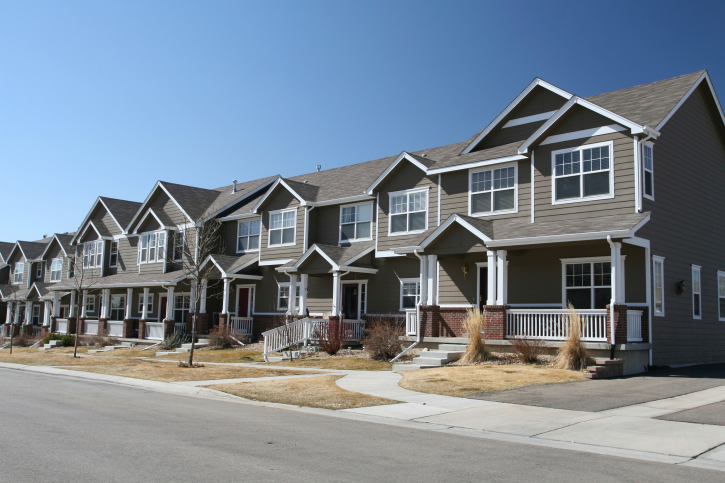 If you’re moving to a new city and you’re looking for an affordable home in a nice neighborhood, one great way to get a fantastic home without paying sky-high prices is by choosing a home in an up-and-coming neighborhood. Communities that are starting to gentrify make it easy to find an affordable home, especially if you buy before the prices start to rise.
If you’re moving to a new city and you’re looking for an affordable home in a nice neighborhood, one great way to get a fantastic home without paying sky-high prices is by choosing a home in an up-and-coming neighborhood. Communities that are starting to gentrify make it easy to find an affordable home, especially if you buy before the prices start to rise.
So how can you spot a neighborhood that’s on the rise? Here’s what you need to know.
Look For Neighborhoods Popular With Artists & Young People
Young people, artists, musicians, performers, and other bohemians tend to lead the way when it comes to neighborhood revitalizations. These are the kinds of people who typically don’t have copious amounts of disposable income, so they’re looking for something affordable. But they also want to live in a hip, trendy part of town.
And as the area gains more and more creative types, it starts to take on its own creative personality. That makes it attractive to all manner of buyers, which starts driving more and more sales. So if you want to find an up-and-coming neighborhood, just follow the artists, musicians, and Gen Y buyers.
Track The Area’s Average Days On Market
One great way to find which neighborhoods are the most popular with buyers is to track the average number of days on market for properties in those neighborhoods. Your real estate agent can help you find this information. If you notice a slow decrease in days on market over time, it’s a good sign that the neighborhood is on the up and up.
Oftentimes, in an up and coming area, the days on market will decrease before prices start to rise – which will help you get a great deal.
Look Up Building Permits To See Where The Renovations Are
You can also tell if an area is up and coming if there’s a lot of renovation activity happening. Visit your municipal government office and see if you can find information on which neighborhoods are seeing more and more building and renovation permits. Lots of construction and renovation activity in an area indicates that it’s a great place to move to.
Finding a great neighborhood is critical to being satisfied with your home purchase. There are lots of things about your home that you can change, but the neighborhood isn’t one of them – so make sure you’re happy with the area before you buy. Local real estate agents are a great source of information about neighborhoods – contact a trusted real estate agent near you to learn which neighborhoods are most popular with buyers.
 If you’re entering the real estate investment market for the first time, you’re embarking on a great adventure – and with a solid plan, you can turn a tidy profit on your investment.
If you’re entering the real estate investment market for the first time, you’re embarking on a great adventure – and with a solid plan, you can turn a tidy profit on your investment. When delving into the realities of home ownership, there can be many factors involved that make it difficult to determine what you need to know and what can wait until later. If you happen to be a first-time buyer who’s looking for the best tips for purchasing a home, look no further than the following three pointers to set you on the right path.
When delving into the realities of home ownership, there can be many factors involved that make it difficult to determine what you need to know and what can wait until later. If you happen to be a first-time buyer who’s looking for the best tips for purchasing a home, look no further than the following three pointers to set you on the right path. Entering into the real estate market requires time and monetary commitment. Depending on the purpose for purchasing rental property determines whether one should invest in a single family or multi-family dwelling. In either case, one should prepare short or long term goals, be cognizant of his or her financial health and monetary comfort zone, and conduct a comparative market analysis before considering a real estate investment.
Entering into the real estate market requires time and monetary commitment. Depending on the purpose for purchasing rental property determines whether one should invest in a single family or multi-family dwelling. In either case, one should prepare short or long term goals, be cognizant of his or her financial health and monetary comfort zone, and conduct a comparative market analysis before considering a real estate investment. With all of the rigmarole that goes into packing up your old home and moving into the new one, there are a lot of details that can get lost in the mix. From cleaning up the old house to handing over the keys, there’s no shortage of small tasks that need to be completed. If you’ll soon be prepping for the exciting move into your next home, here are some ways to prepare yourself for this busy time.
With all of the rigmarole that goes into packing up your old home and moving into the new one, there are a lot of details that can get lost in the mix. From cleaning up the old house to handing over the keys, there’s no shortage of small tasks that need to be completed. If you’ll soon be prepping for the exciting move into your next home, here are some ways to prepare yourself for this busy time. Many people make the decision to move from the country or the suburbs into the heart of the downtown area for a number of reasons, such as to enjoy proximity to work or to enjoy the urban lifestyle. With the higher cost of real estate in central urban areas and with real estate space at a premium, many who make the decision to relocate will need to downsize from a larger house to a smaller condo or apartment. While this can be challenging, it can be accomplished by following a few steps.
Many people make the decision to move from the country or the suburbs into the heart of the downtown area for a number of reasons, such as to enjoy proximity to work or to enjoy the urban lifestyle. With the higher cost of real estate in central urban areas and with real estate space at a premium, many who make the decision to relocate will need to downsize from a larger house to a smaller condo or apartment. While this can be challenging, it can be accomplished by following a few steps.